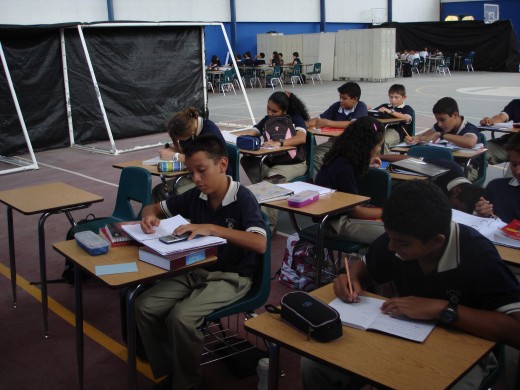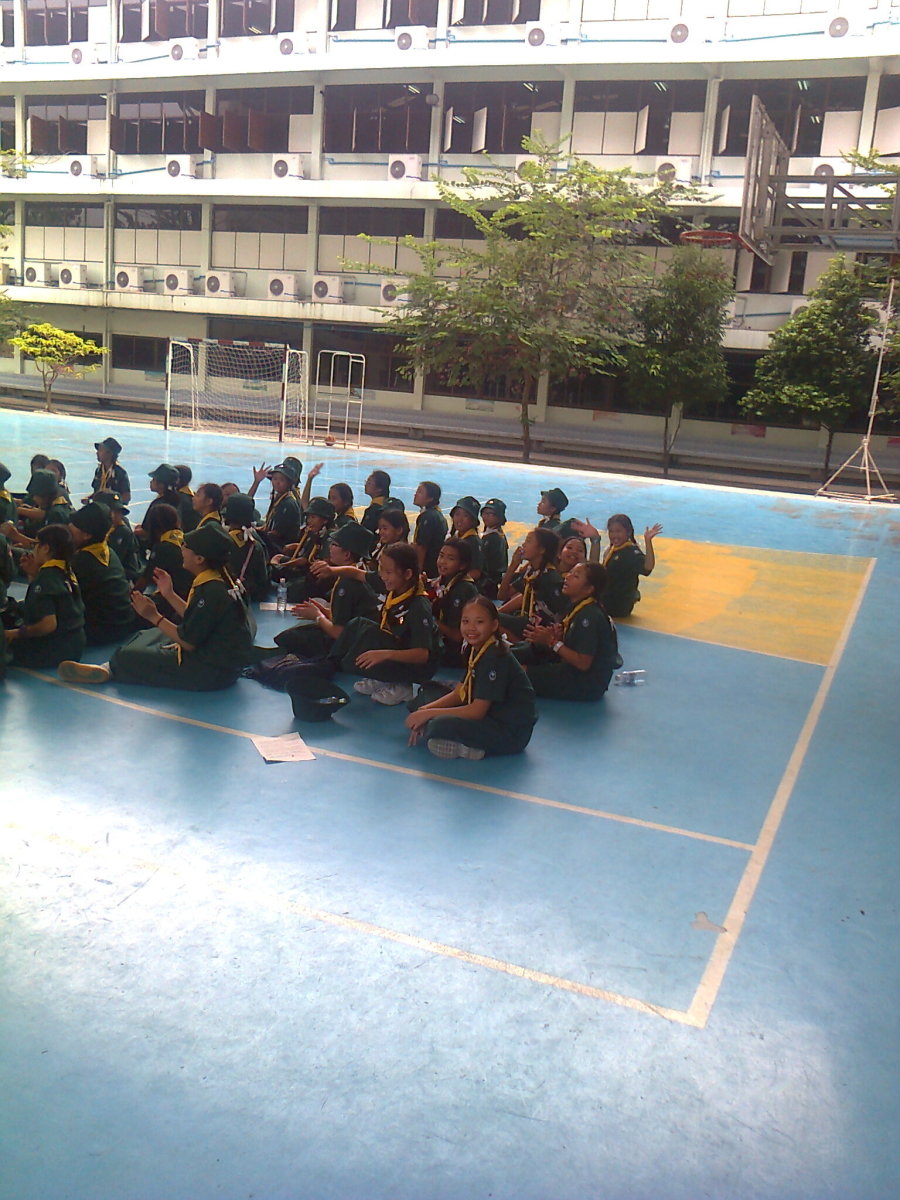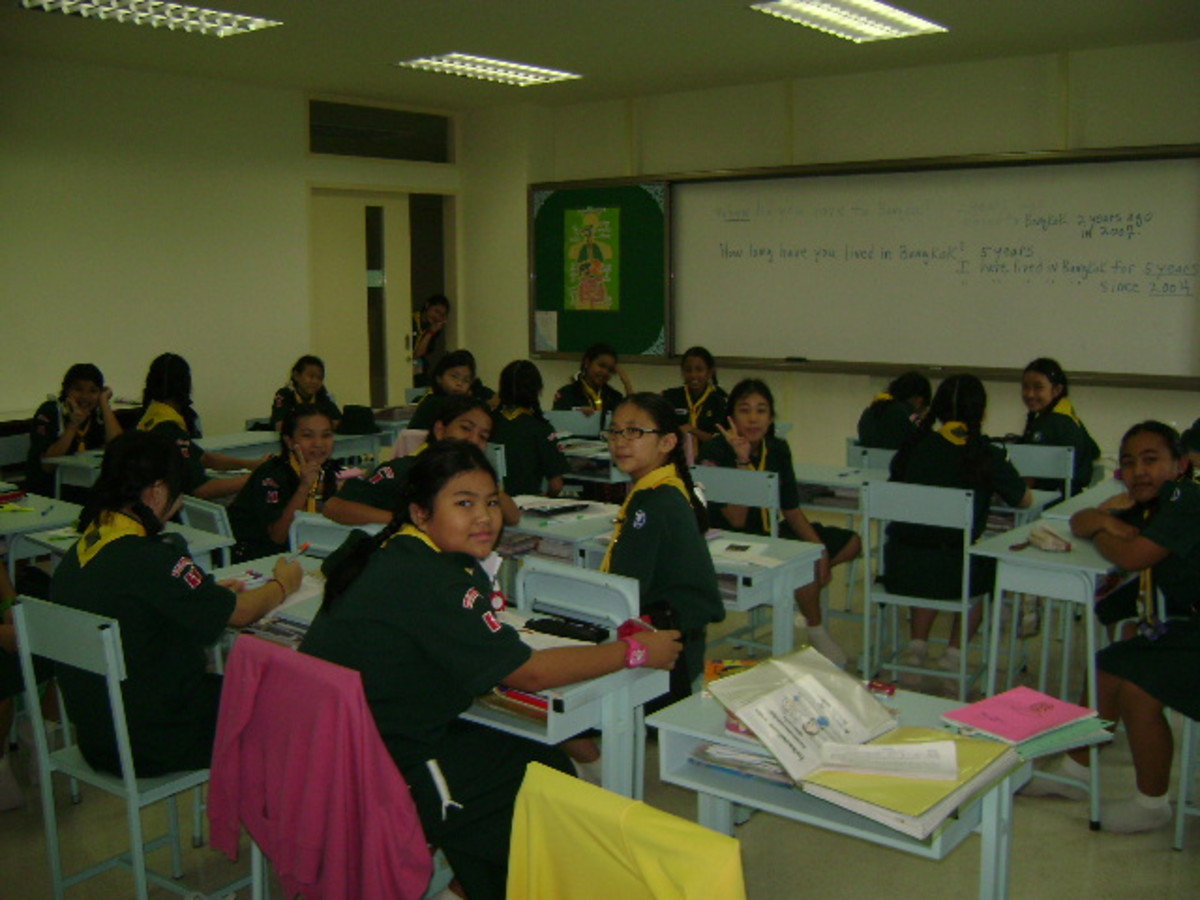Teaching English in Schools of Costa Rica

Teaching English in Schools of Costa Rica
In 2008, I decided to come to Costa Rica to teach in a private high school. This private high school had two different locations in the country, one near San José and one in Liberia (northwest Costa Rica in the Guanacaste province). I really didn't know what I was getting into, but true to my adventurous spirit, I plunged right in to see how it would work out. Luckily, although I was not fluent in Spanish, we did have good textbooks and I did know enough words to explain some complicated concepts to the kids. Over the next few month, I would also be increasing my vocabulary through reading and practicing my conversational Spanish with my Costa Rican colleagues.
Public high schools in Costa Rica can't hire teachers from other countries unless they have a work permit (carnet) and residency, however private schools do it out of necessity in many cases. It is one way to get teachers in the schools who are native speakers, and in my experience, most Costa Rican teachers lack both the accent and don't have an adequate understanding of English.
The pay for English teachers is a bit above subsistence level. Because of this, there is also regular turnover and new teachers are frequently needed. So opportunities exist, and it is a good experience for beginning teachers and people who are looking for a new experience.
Below, I discuss volunteer teaching opportunities and feature two videos that discuss opportunities. There are also sections where I share my experience as a teacher in two different institutions. I now teach independently and discuss that in the final section of this articl
Volunteer Teaching in Costa Rica
Many young people also come to Costa Rica and teach as volunteers. The video below was prepared by teachers who came into the country via the EVOLT program. There are several other organizations that provide volunteers with classes to help hone their English teaching skills and provide them with unique cultural experiences. These programs do cost the volunteers money to cover costs of housing, transportation and other services provided. The University of Georgia has a volunteer teaching program as well, and a couple of their students talk about their volunteer experiences in the second video.
Things You Can See And Do As A Volunteer Teacher
The University of Georgia Teaching Program in Costa Rica
About My School and The School Year
High schools go from seventh grade to eleventh grade in Costa Rica. I had classes in seventh, eighth and ninth grades. The school year in Costa Rica goes from February to mid-December, with a breaks for Holy Week (Semana Santa) and two weeks in July.
There were four other English teachers in the high school, one for ESL for the kids who had little exposure to the language and the others who were teaching regular classes in English: Grammar and Literature, Science and Mathematics. The school was going through a growth phase and they were in the middle of building new classrooms, so we had to start the year teaching in a gymnasium where there were five other classes. The new classrooms, which had air conditioning, would not be ready until July, so we had to sweat it out and deal with the echoing noise in the gym from the other classes from February to June.
The school paid for my housing, which I shared with another teacher. The pay wasn't much, but it was enough to live comfortably and allow for some weekend trips out and about to explore the countryside. Rest and relief was a necessary part of the process for me. Managing the students, which is about 75% of the job, was energetically draining. My class management skills got better with time, however.
Where is Costa Rica? In Central America, Between Nicaragua and Panama.
What I Learned As A Teacher of English in Costa Rica
I have worked with two different private schools, one Christian and another non-sectarian. If I have learned anything during my time teaching, it is that only a few of the students I have taught are seriously goal-oriented and are hard workers. On average, about 25% of the classes seemed to take their work seriously, mostly the girls. The challenge was to motivate them to get things done and to understand the value of regular study habits. Many of the students come to class and view the high school as an opportunity to play soccer or socialize. The crunch comes when mid-terms and finals approach, and most of the students do get the job done, enough to pass the course.
Consulting with the parents was a regular and necessary part of the process with the first school. What the students communicate to the parents is often not the true picture of what is happening in the class. In the second school where I taught, there was no direct communication with the parents by the teacher, which I though was odd and it created a situation that made it impossible to discipline certain children. This management style was adopted to help keep parents from interfering, but it resulted in occasional confrontations that could have been avoided if we were permitted to talk with the parents. Teachers were put in situations without sufficient management support as well.
I came away from both experiences with a poor reflection of school management abilities. Perhaps some of this is based on constraints and low expectations for students as set forth by their governmental education agency, MEP. However, in the second school I taught, there was little respect shown to the teachers and there was micro-management of quiz and exam dates, to the point were there was little time to teach the material. Also, management did not follow through with disciplining children when several serious infractions had been issued, indicating that the school was more interested in the tuition money from their parents that in the general state of school discipline. Without this support, it is impossible to manage a class effectively. And the teachers become scapegoats for a failure of management.
Teaching English Resources
Teaching Conversational English
Now that I am not working in the schools teaching English, I have started my own private tutoring service, called Inglés Conversacional, Liberia, Costa Rica. I offer a variety of services, including tutoring individual students who are having problems in their English classes. I also help people with their English for working with clients in specialized areas like massage therapists and businesses. I like to help my students develop the necessary conversational skills to communicate effectively in a variety of situations.
I find this style of teaching more engaging and it is not fraught with the problems that are associated with managing groups of children who really aren't interested in learning. Life is short, and I want to make my remaining time on earth more meaningful.








